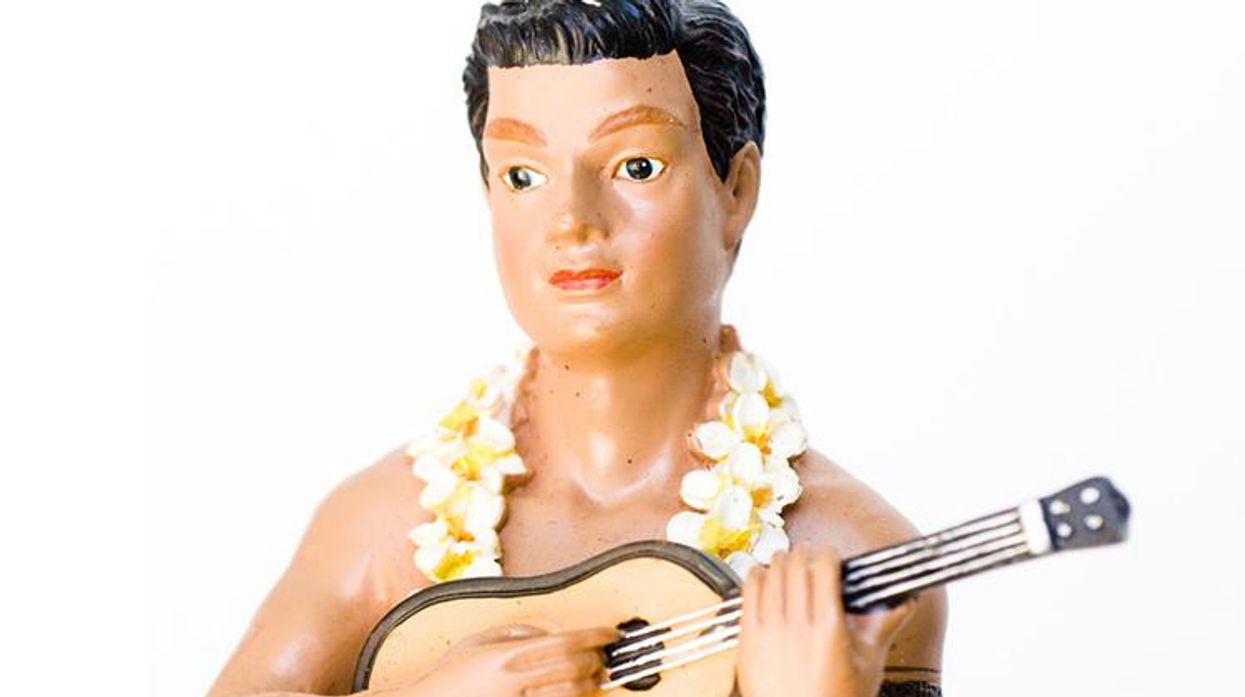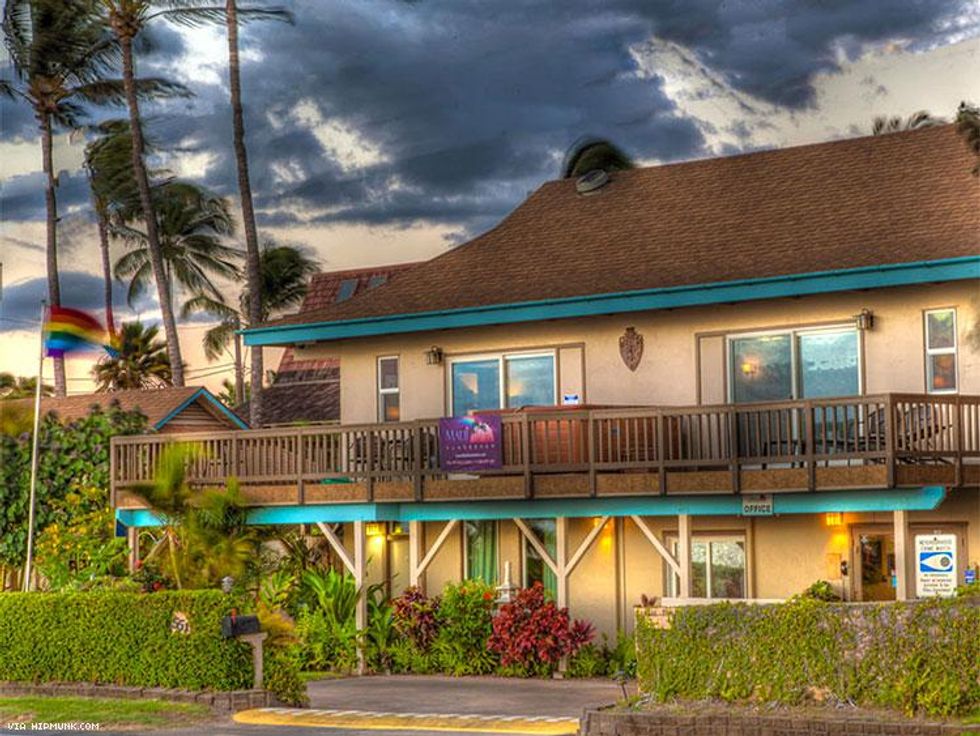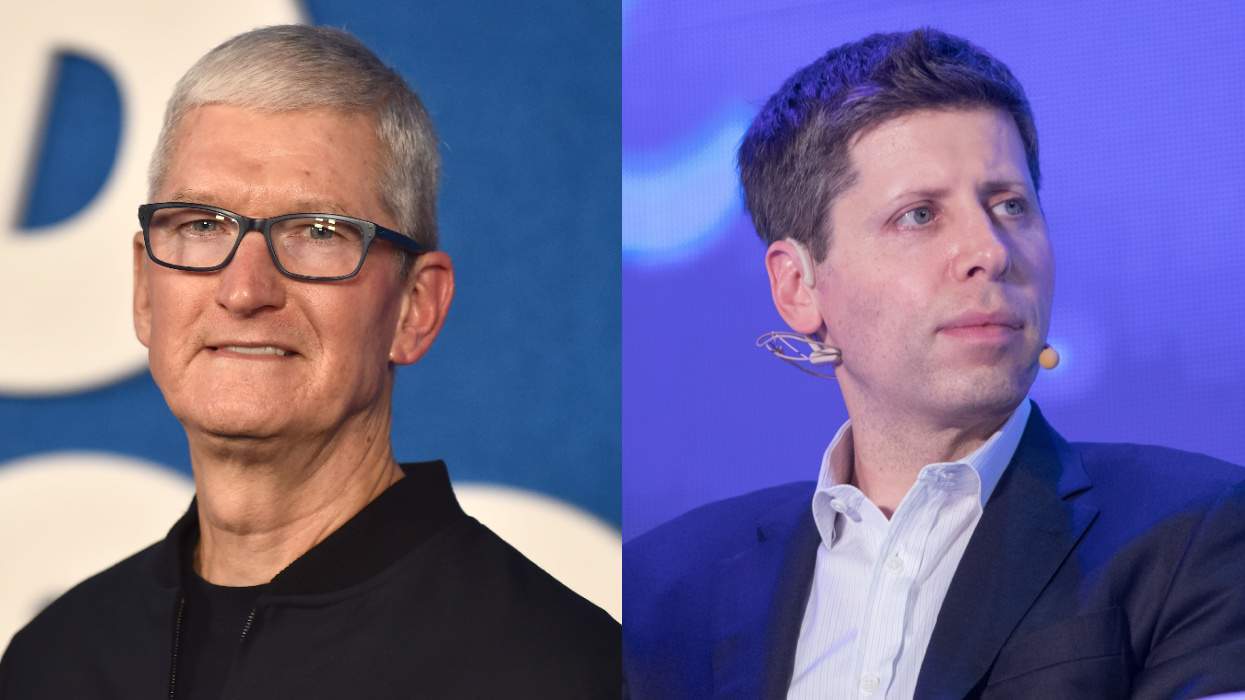Besides a nude beach that attracts a sexually diverse crowd, gay-friendly options on Maui were long limited to a sole hotel. Then, in September, the Maui Sunseeker was sold and rebranded as an adults-only resort that no longer specifically caters to LGBT guests.
Now called the Kohea Kai ("Serenity by the Sea" in Hawaiian), the hotel was purchased by a company that operates several hotels around San Francisco. While the new owners promise everyone is still welcome, the closure of the island's only specific queer space has been a blow to the Sunseeker's faithful fans and the island's inhabitants.
"It has not been easy for Maui's LGBT community to accept, because they have a great affinity for the Sunseeker," says Michael Waddell, the Sunseeker's gay general manager, who was retained to run the Kohea Kai. "The resort was so ingrained in the LGBT community for so many years, and we financially supported so many community activities."
Long a destination for gay and bi men, the Sunseeker was a flirty, though not necessarily a cruisy, destination. After previous owner Chuck Spence bought the hotel in 2008, he successfully attracted queer women and trans guests to the property. The hotel became a de facto meeting spot and community center, hosting hundreds of civil unions in the pre-marriage days and, later, a beach vigil for the victims of the Pulse massacre.
No one could decide if the closing of Maui's only gay-specific hotel meant that the island was becoming less of a destination for queer travelers or if LGBT people had so successfully integrated into life on the island that queer spaces were no longer necessary. Hawaiian hotels and tour operators have long made a play for the queer dollar, and the Aloha State is about as blue as you can get, but even on Oahu -- the state's most populated island -- there is only a smattering of gay bars and LGBT-specific hotels.
"It seems LGBT couples are feeling more comfortable staying at mainstream resorts," Waddell says, adding that the Sunseeker's longtime gay guests began to drift to other hotels when they returned to Maui. Recently, progressive heterosexual guests supplemented some of that lost revenue, but not enough to maintain that business model.
After the Sunseeker was featured on the Travel Channel's Hotel Impossible in 2012, the show's producers told Waddell, "When, not if, equal rights passes, our business model would have to change to attract a larger audience. If we didn't change, then there might not be a business at all. They were exactly correct."
Marriage equality, which came to Hawaii in 2013, wasn't the only evolution rocking the Sunseeker. The advent of hookup apps meant that hanging by the hotel's pool was no longer the quickest way to meet a traveling companion. Even though Maui is only about 700 square miles, it can take hours to get to the Sunseeker from other parts of the island.
But Hawaii is not like every destination. Using smartphones is very expensive outside the U.S., and Grindr is banned in conservative nations like Turkey. While two men holding hands on Maui's Makena Beach may not draw much attention, same-sex PDAs can be a fraught experience almost anywhere, even in big-city destinations like Miami or London (or Hawaii, for that matter). The last thing queer couples want to worry about on vacation is encountering a homophobe, says John Tanzella, president and CEO of the International Gay and Lesbian Travel Association.
"[LGBT hotels offer] a sense of belonging and safety in public spaces, particularly if it's a same-sex couple who wants to show affection or someone who is gender-nonconforming," Tanzella says. "If you live in a gay-friendly urban environment, it's easy to forget that many LGBT people are on holiday from places where they don't feel comfortable being out."
Though the country's most infamous gay hotel, New York's Out Hotel, is in the process of being sold, that can be partially blamed on the horrible press its owners received after hosting an event for antigay Texas Sen. Ted Cruz's presidental campaign as well as denigrating their own customers. But other queer resorts in LGBT-friendly cities like Berlin, Barcelona, and Provincetown, Mass., are still thriving, Tanzella says.
Unlike those places, Maui is not a party destination. When LGBT travelers go there, it's not to hit up a circuit party or tea dance; for many, it's to relax in a beautiful, tropical place not associated with homophobia.
Queer travelers to the Kohea Kai will feel just as free as when it was the Sunseeker, Waddell proclaims. Rather than the guests all being like-minded sexually, Waddell believes they'll be like-minded politically; something maybe even more important in a post-Trump world.
"We believe the desire for progressive resorts with an adult-only focus is growing," Waddell says. "It's truly amazing to watch same-sex couples lying by the pool with opposite-sex couples right nearby ... we are starting to see more integration of straight and same-sex couples as they head off on the Road to Hana or dine together. Maybe it's the 'aloha spirit.' Maybe it's a sign of the future. Whatever it is, it's a good thing."

















